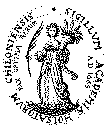Abstract. We show how standard parameter estimation methods can be applied
to Geometric Algebra in order to fit geometric entities and operators to
uncertain data. These methods are applied to three selected problems. One
of which is the perspective pose estimation problem. We show experiments
with synthetic data and compare the results of our algorithm with standard
approaches.
In general, our aim is to find multivectors that satisfy a particular constraint,
which depends on a set of uncertain measurements. The specific problem
and the type of multivector, representing a geometric entity or a geometric
operator, determine the constraint. We consider the case of point measurements
in Euclidian 3D-space, where the respective uncertainties are given by
covariance matrices. We want to find a best fitting circle or line together with
their uncertainty. This problem can be expressed in a linear manner, when
it is embedded in the corresponding conformal space. In this space, it is also
possible to evaluate screw motions and their uncertainty, in very much the
same way.
The parameter estimation method we use is a least-squares adjustment
method, which is based on the so-called Gauss-Helmert model, also known
as mixed model with constraints. For this linear model, we benefit from the
implicit linearization when expressing our constraints in conformal space. The
multivector representation of the entities we are interested in also allows their
uncertainty to be expressed by covariance matrices. As a by-product, this
method provides such covariance matrices.
Keywords. Geometric Algebra, conformal space, parameter estimation, least
squares adjustment, pose estimation, fitting, Mahalanobis distance.





